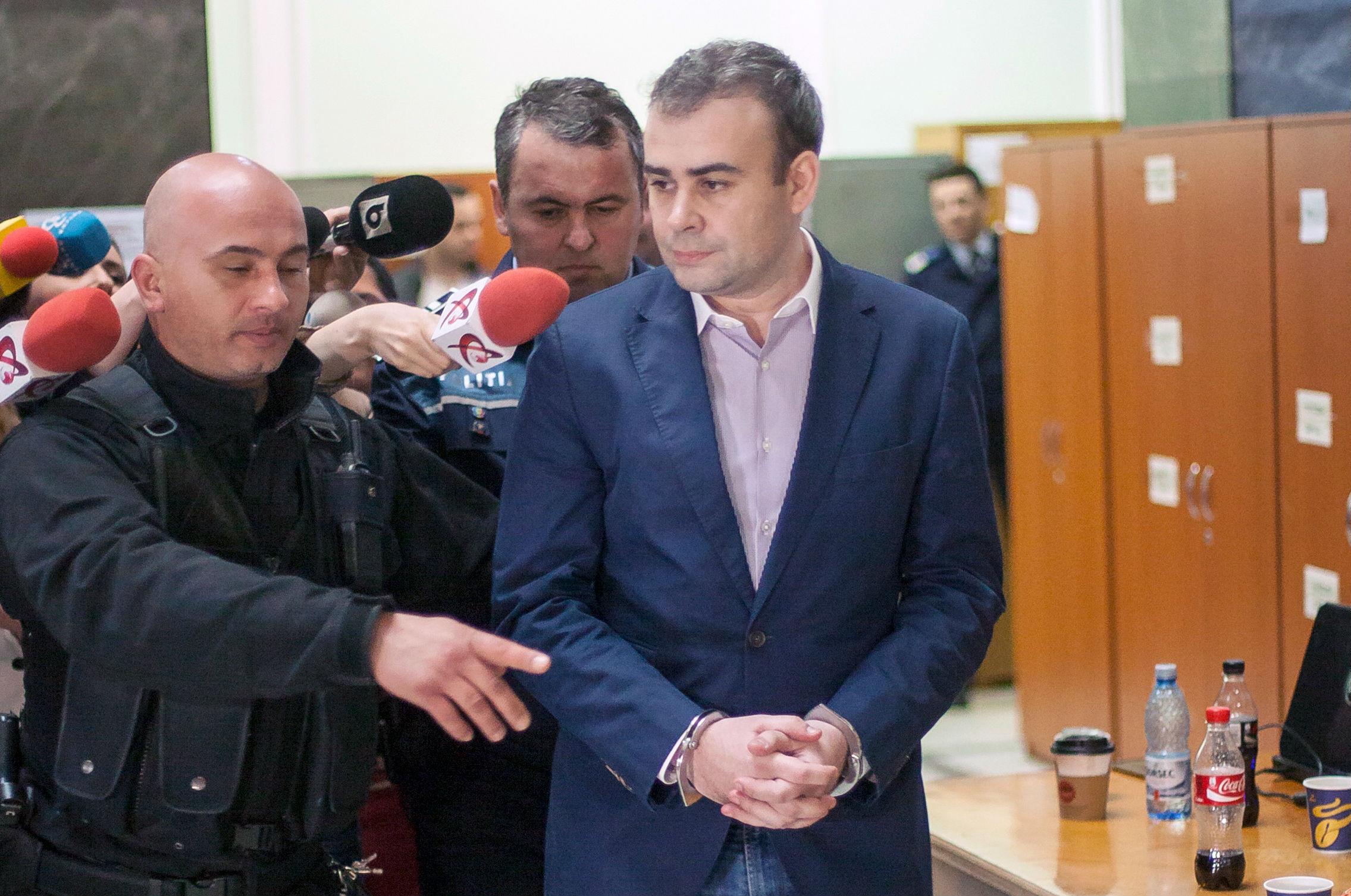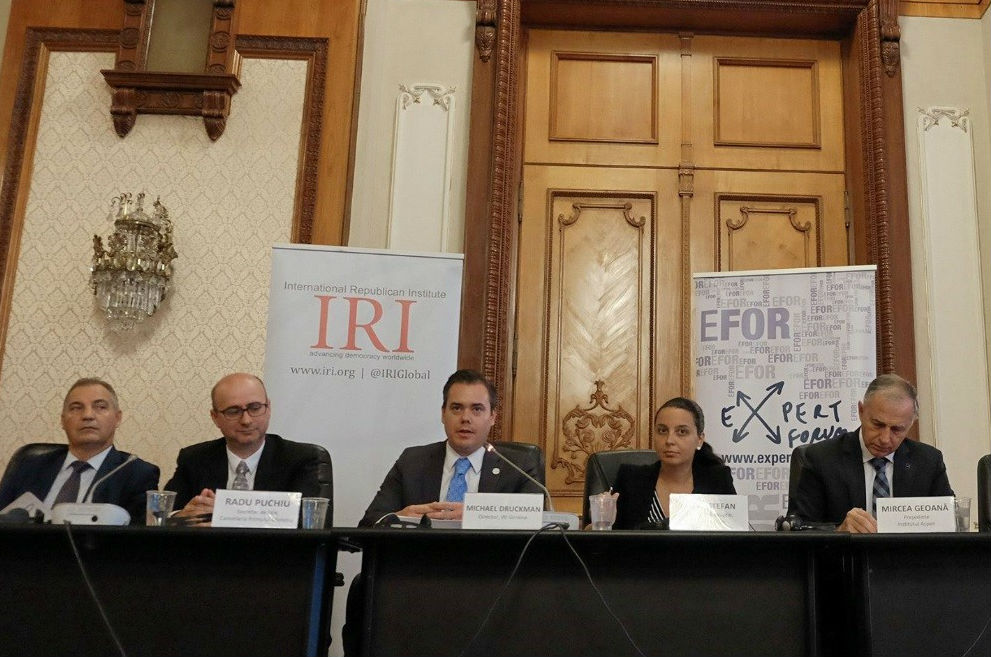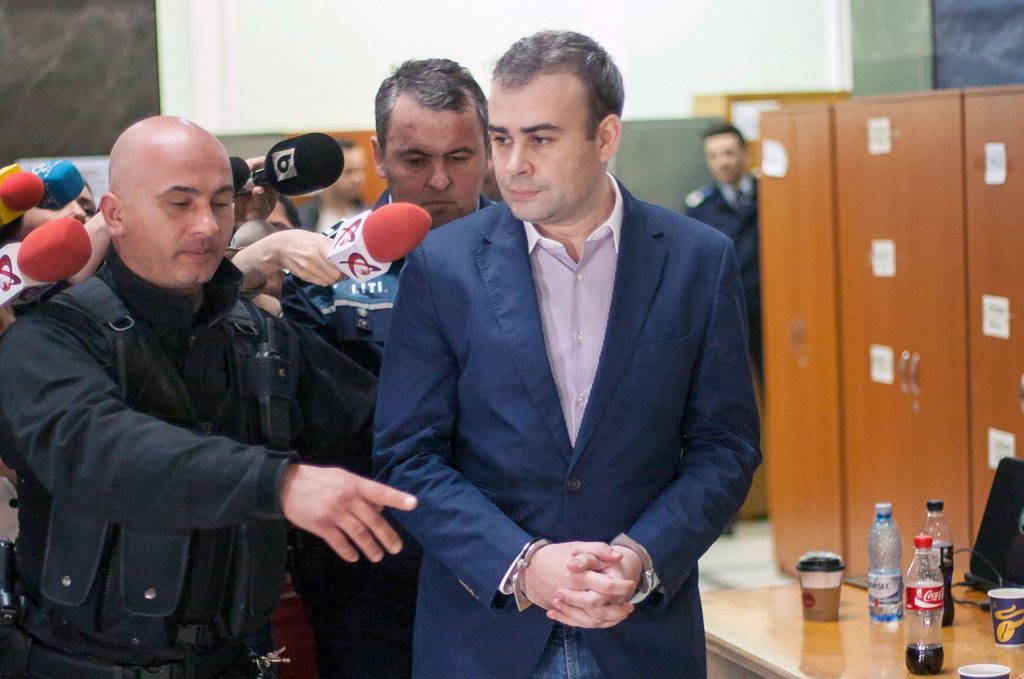 In 2015, Romania got serious about its corruption problem. DNA, its aggressive anticorruption body, indicted 1,250 public officials, including the sitting prime minister. Five other ministers, twenty-one members of parliament, and Bucharest mayor Sorin Oprescu were indicted. The agency ordered the seizure of nearly half a billion euros.
In 2015, Romania got serious about its corruption problem. DNA, its aggressive anticorruption body, indicted 1,250 public officials, including the sitting prime minister. Five other ministers, twenty-one members of parliament, and Bucharest mayor Sorin Oprescu were indicted. The agency ordered the seizure of nearly half a billion euros.
Romania is now perceived as less corrupt. In 2002 when the DNA was put into place, Transparency International’s Corruption Perceptions Index ranked the country as the 77th most corrupt country in the world, tying with Pakistan and the Philippians. In 2015, Romania had improved to 58th place.
Since the introduction of the DNA, progress hasn’t been steady; there have been many ups and downs. But things changed in December 2014 when Klaus Iohannis unexpectedly won the presidential race. Under his leadership, Romania has placed a renewed emphasis on fighting corruption, aiming to rebuild public trust in elected officials following a series of scandals prior to Iohannis’ election.
On September 14 the International Republican Institute (IRI) and the Romanian Expert Forum think tank hosted a conference in Bucharest to identifying practical areas of cooperation between Romanian civil society, political parties, and the government to combat corruption. The conference also included perspectives from Lithuania and Ukraine. Former Prime Minister of Lithuania Andrius Kubilius provided examples from his days leading the country through an economic crisis while tackling political party finance reform and transparency in the business community. As the head of IRI’s Ukraine operation, I presented the Ukrainian perspective, drawing from IRI’s experience implementing municipal anticorruption reform efforts there, and discussing the vital role civil society plays in encouraging parties and the government to enact reforms. I also highlighted the role that citizens and local governments are playing through the use of public assessment tools.

Michael Druckman (center) speaks at “Transparency and Integrity in the Public Space,” a conference in Bucharest, Romania, sponsored by the International Republican Institute and the Expert Forum on September 14. Credit: IRI
Ukraine is also in the midst of a very public anticorruption effort, which has drawn both censure and praise. Since 2015, a number of new agencies have been established and important legislation adopted to address endemic corruption in politics and public institutions. The most visible manifestation of these efforts is the National Anti-Corruption Bureau (NABU), which, together with its civil oversight body of fifteen elected civic activists, has been tasked with investigating state-level corruption in Ukraine by working with investigators and whistleblowers. While reliant upon the prosecutor’s office and the courts to address cases of alleged wrongdoing, the institution is a strong public step toward enhancing the state’s ability to conduct independent investigations.
In Romania, the loudest criticism aimed at the DNA is that it throws too many people in jail while neglecting to pursue the prevention aspect of its mandate. In Ukraine, the main complaint one hears is that no one has gone to jail yet. Prevention is a key task of NABU, and strong citizen involvement is playing an outsized role in educating the Ukrainian public about NABU, its ancillary agencies, and its functions.
Romania and Ukraine are dealing with many of the same issues. Both struggle with the proper place of a national anticorruption agency, the role civil society should play in engaging parties and government in fighting corruption, how political parties should be financed, and how public procurement can be made more transparent and competitive for small businesses.
While Ukraine is starting its fight years after Romania, civil society appears far more focused and engaged there. Ukrainian civil society has been hyper-mobilized since well before the Euromaidan, continues to apply pressure on the government to act, and regularly develops solutions subsequently adopted by the government. The creation of an elected civic oversight body within NABU, political party finance reform legislation, and the creation and adoption of the ProZorro e-procurement system were all civil society-led initiatives.
To support Ukraine’s efforts, IRI has pioneered the use of an anticorruption tool, the Vulnerabilities to Corruption Assessment (VCA), first developed and used in Mongolia and Indonesia in 2015 to help communities combat local corruption. In practice, this is achieved through a series of detailed interviews with local government officials, department and agency management, followed by analysis conducted with local civil society organizations focused on a specific community issue and presented to the relevant government or agency. IRI provides research and analytical support throughout this process and creates a bridge between government officials and local civil society organizations. In Mongolia, the mayor of Ulaanbaatar developed a comprehensive anticorruption action plan that included a greater role for civil society in oversight over public spending, and used citizen councils for more direct communication with local residents.
Several Romanian government ministries and agencies showed interest in the VCA, which indicates that Iohannis’ government is prepared to take both a serious, enforcement-oriented approach to corruption and to explore innovative anticorruption tools. This will go a long way toward rebuilding the Romanian people’s confidence in the integrity of public service and the government. Back in Ukraine, IRI is completing its pilot series of VCAs in Chernivtsi, Ivano-Frankivsk, and Mykolaiv with in-depth consultations involving local leaders, civil society and experts. In addition, IRI has shared its approach and methodology with NABU and is working with the new body as it seeks additional tools to gain more grassroots support and devolve from being seen as another Kyiv-centered institution into a truly national anticorruption watchdog.
Michael Druckman, a UkraineAlert contributor, is the International Republican Institute’s Country Director in Ukraine. He tweets @MikeDruck.
Image: Former Romanian Finance Minister Darius Valcov (front) is brought handcuffed by policemen at the High Court of Cassation and Justice, for a hearing to extend his preventive arrest in Bucharest, March 26, 2015. Romania's crackdown on corruption is having an unintended consequence: investment is slowing as many officials avoid approving projects lest they become the next target of the investigators. However, observers say, getting to grips with corruption will bring huge long term benefits to Romania, the EU's second poorest country. This year, prosecutors accused Valcov of taking kickbacks worth about 2 million euros during his time as a provincial mayor. They also accuse him of making unlawful gains and discovered cash, gold bars and dozens of paintings, including by Pablo Picasso and Pierre Auguste Renoir, stashed away. He denies any wrongdoing. Picture taken March 26, 2015. REUTERS/Ovidiu Micsik/Inquam
